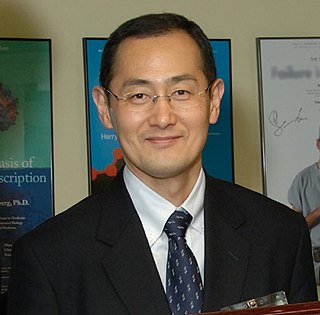A Quote by Stephen Hawking
Stem cell research is the key to developing cures for degenerative conditions like Parkinson's and motor neuron disease from which I and many others suffer. The fact that the cells may come from embryos is not an objection, because the embryos are going to die anyway.
Related Quotes
If my dramatic career doesn't work out, I will go on to research and find cures for Alzheimer's or Parkinson's and other motor neuron diseases. It's a very exciting field of research. But I'd like to continue in drama, so it wouldn't be very smart of me if I blew this amazing opportunity with an inappropriate lifestyle.
For me, moral questions such as stem-cell research turn upon whether suffering is caused. In this case, clearly none is. The embryos have no nervous system. But that's not an issue discussed publicly. The issue is, Are they human? If you are an absolutist moralist, you say, "These cells are human, and therefore they deserve some kind of special moral treatment."
Many good Christians are confused about complex social issues of our day, such as doctor-assisted death or medical research which uses stem cells from human embryos. They wonder, 'Why shouldn't science use discarded fetuses for research?' And if someone finds his medical condition intolerable and hopeless, 'why shouldn't he have the legal right to end his life?' Although the Bible does not address these issues in particular, it does provide guiding insights.
It might be thought the height of poor taste to ascribe good fortune to a healthy man with a young family struck down at the age of sixty by an incurable degenerative disorder from which he must shortly die. But there is more than one sort of luck. To fall prey to a motor neuron disease is surely to have offended the Gods at some point, and there is nothing more to be said. But if you must suffer thus, better to have a well-stocked head.





































